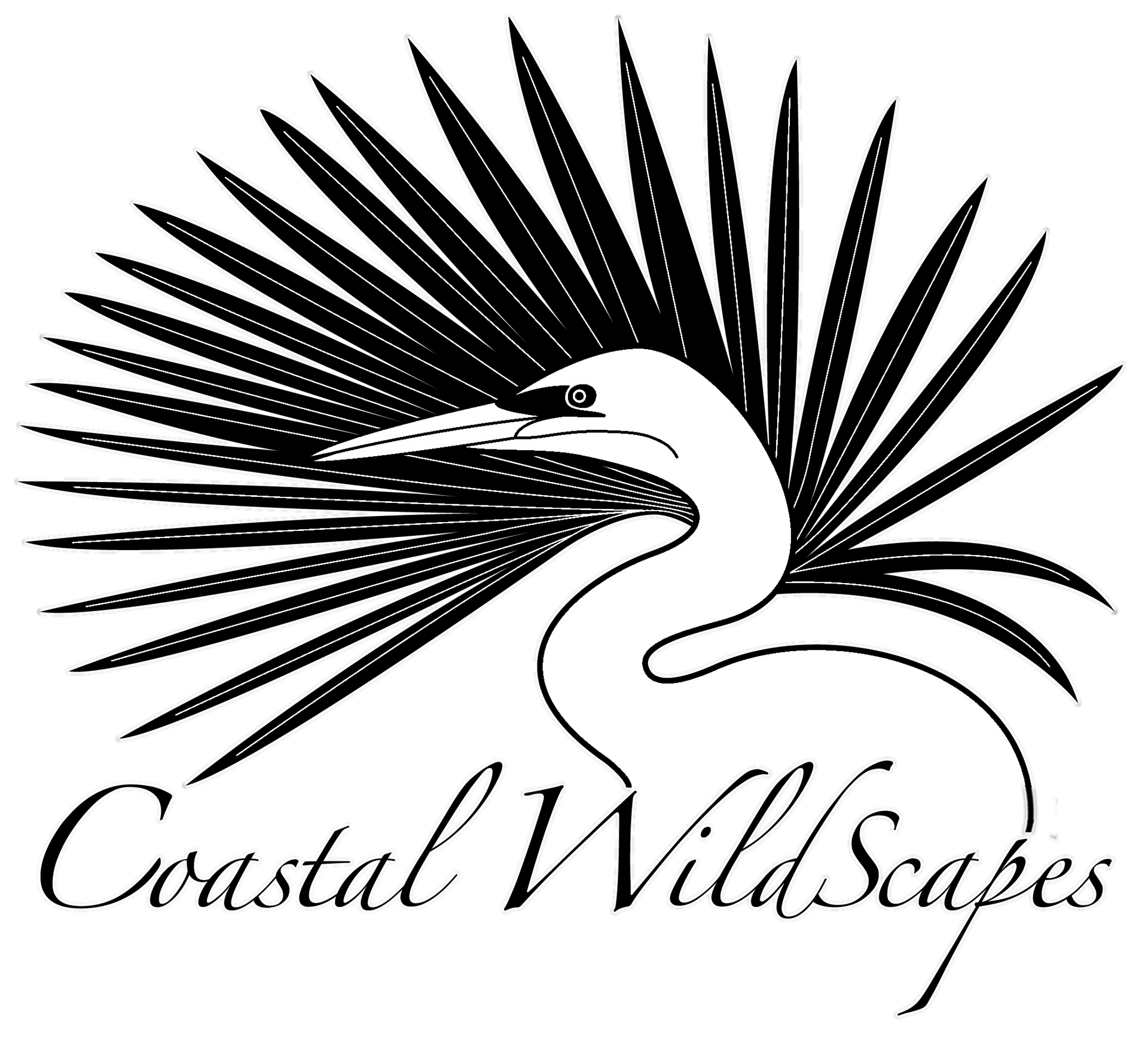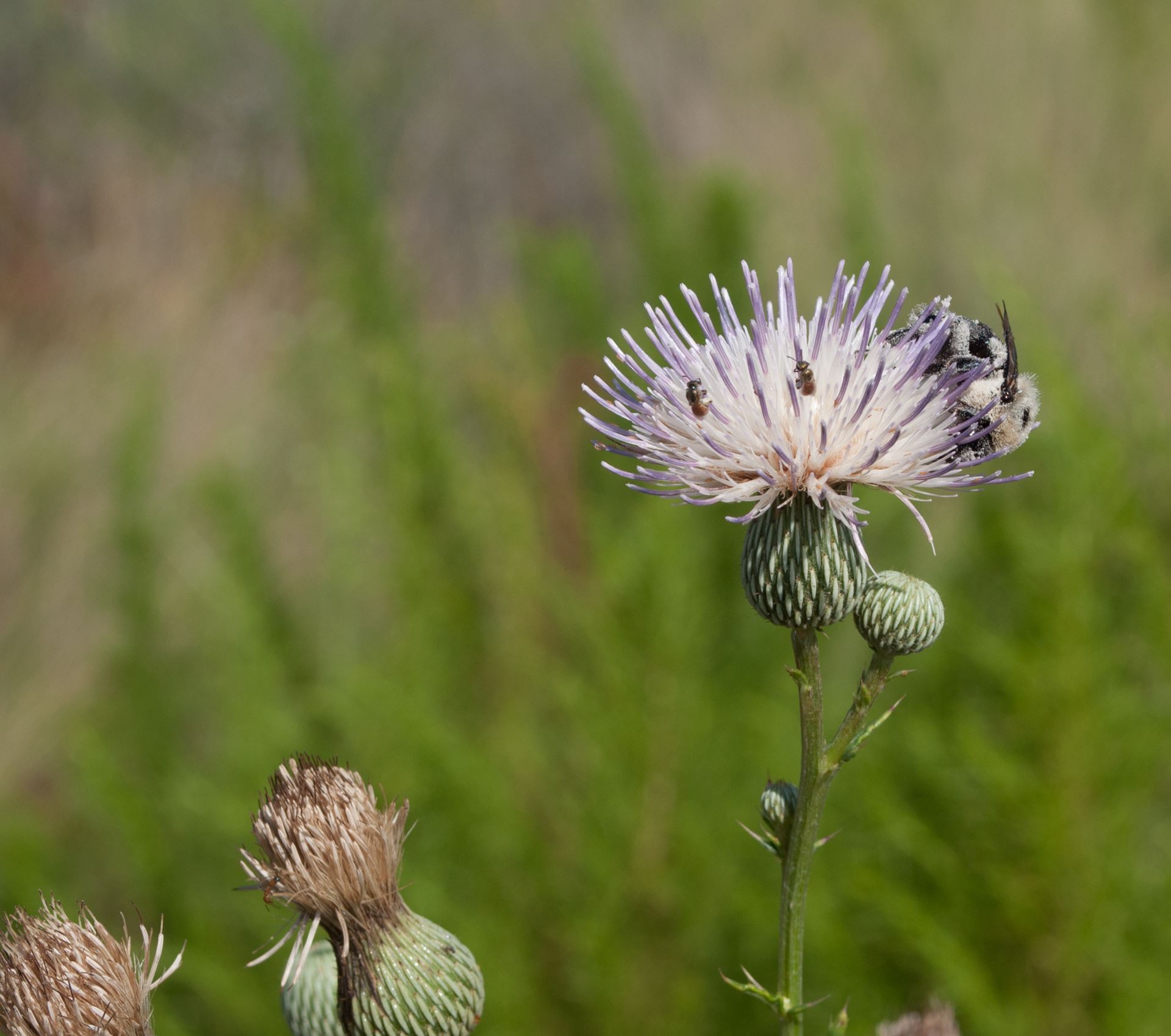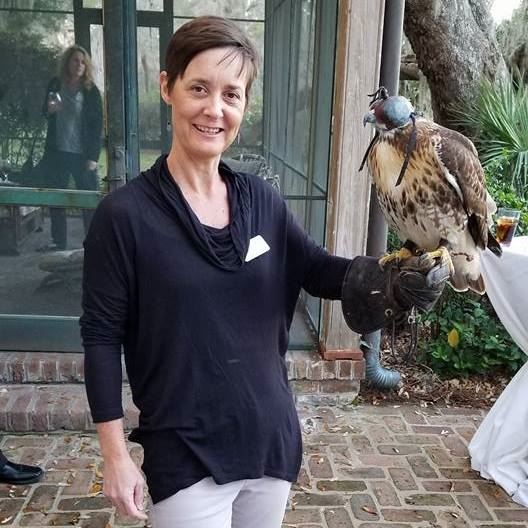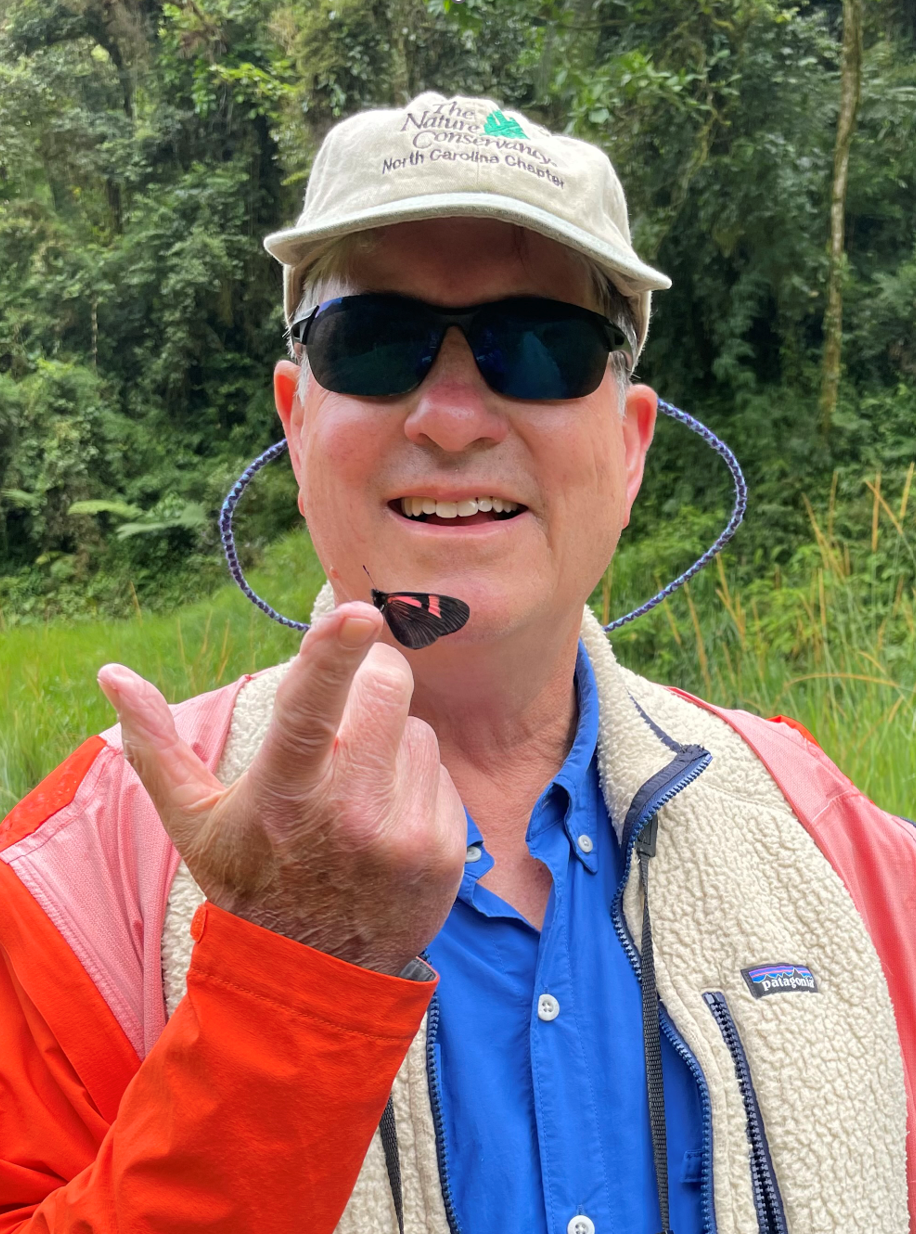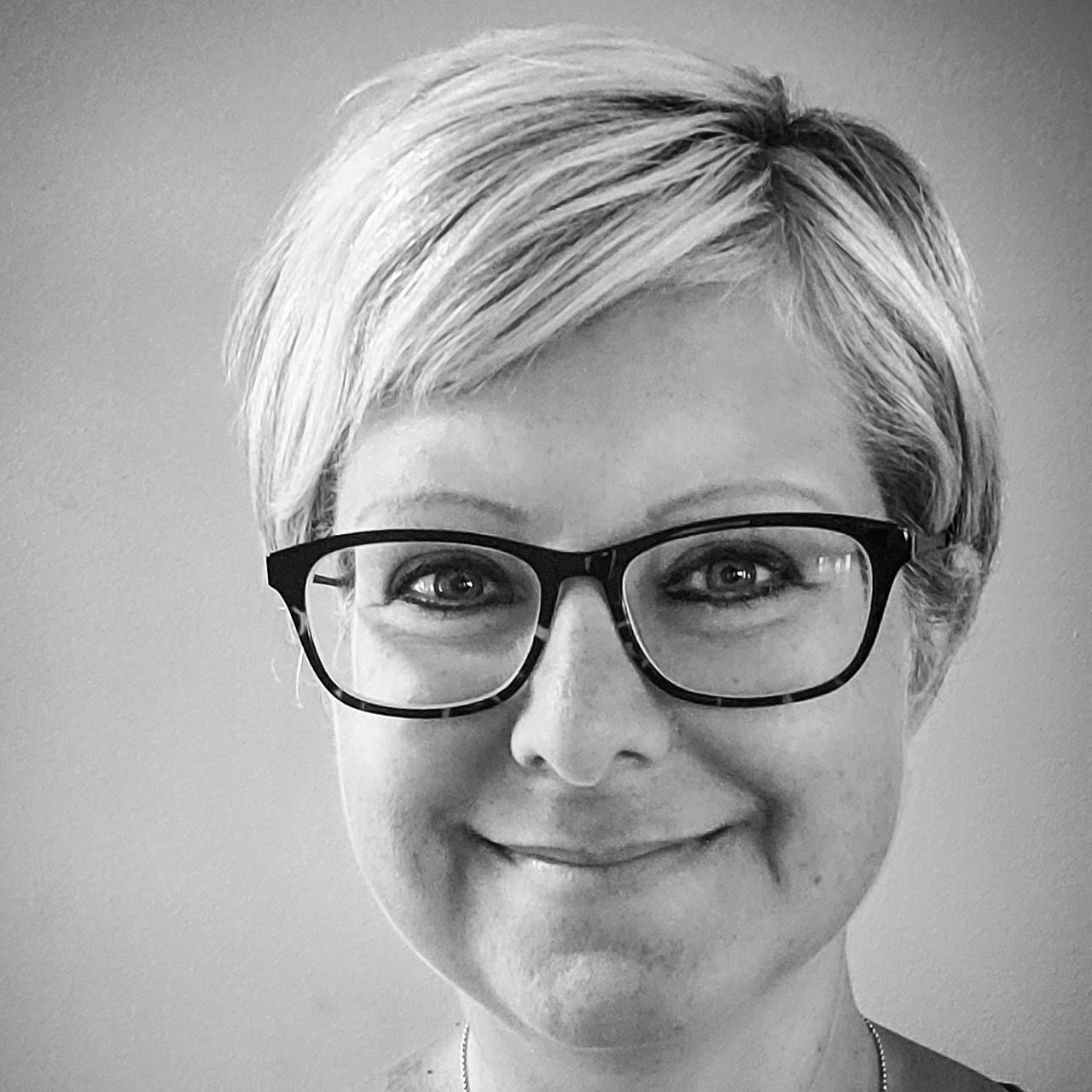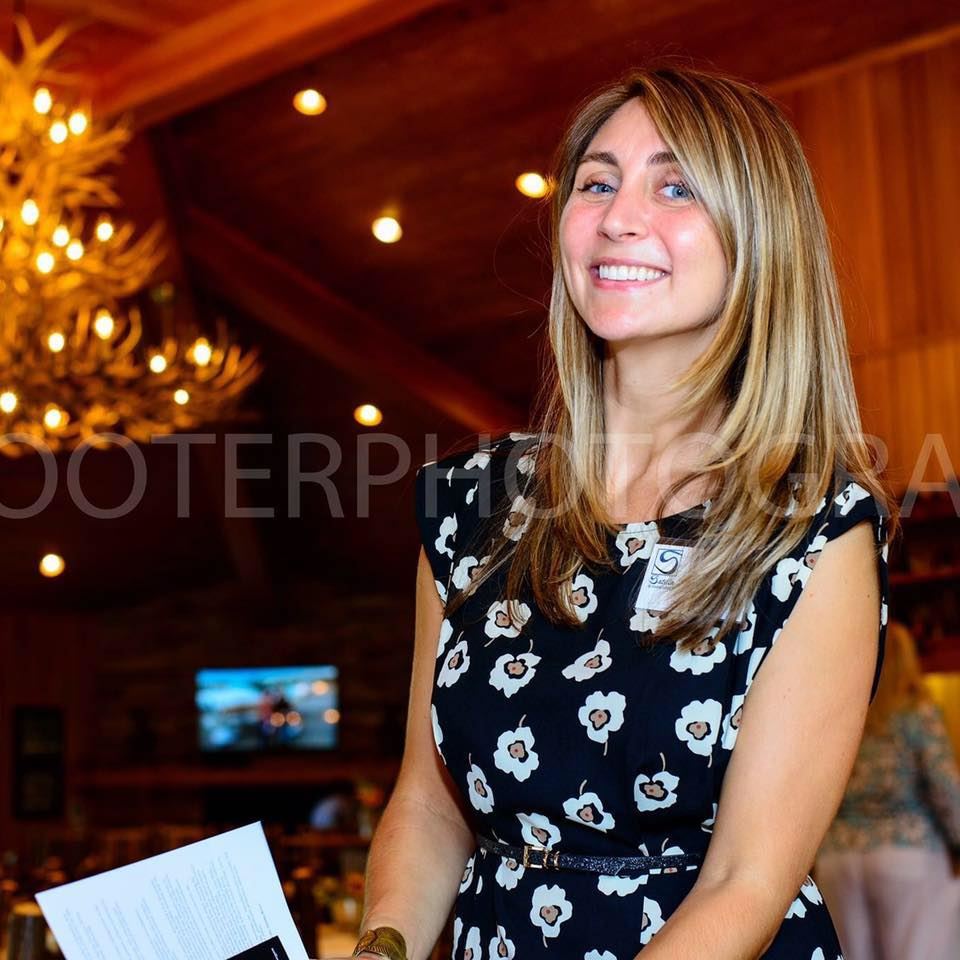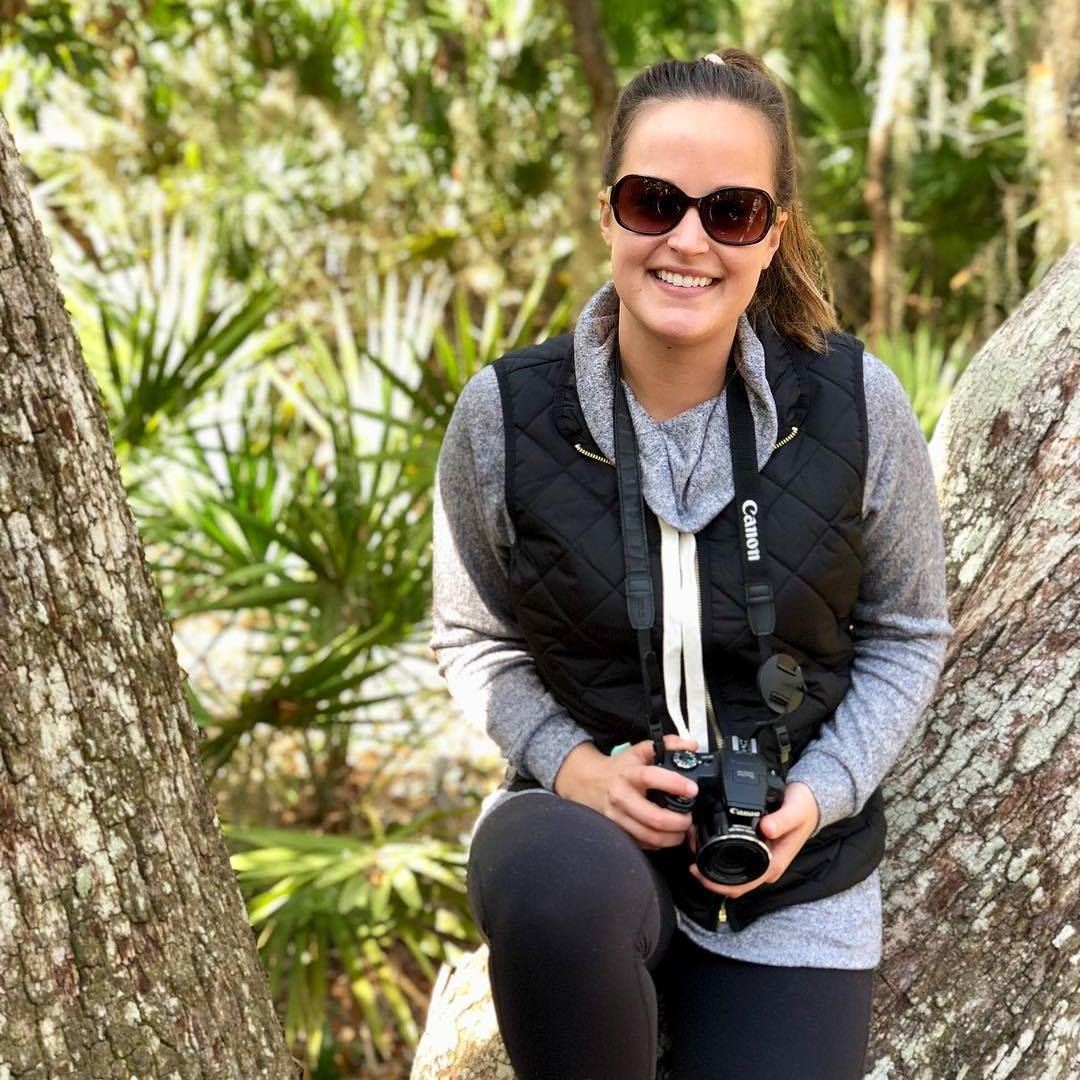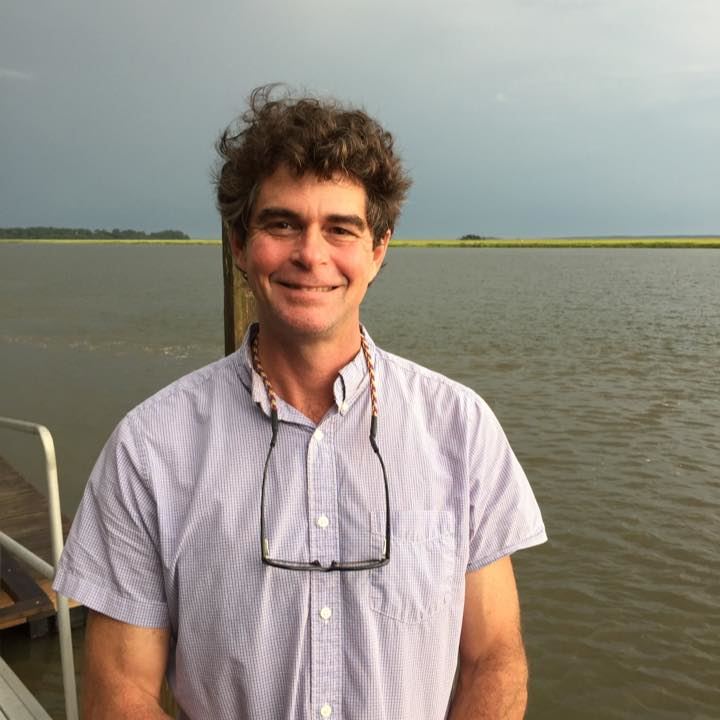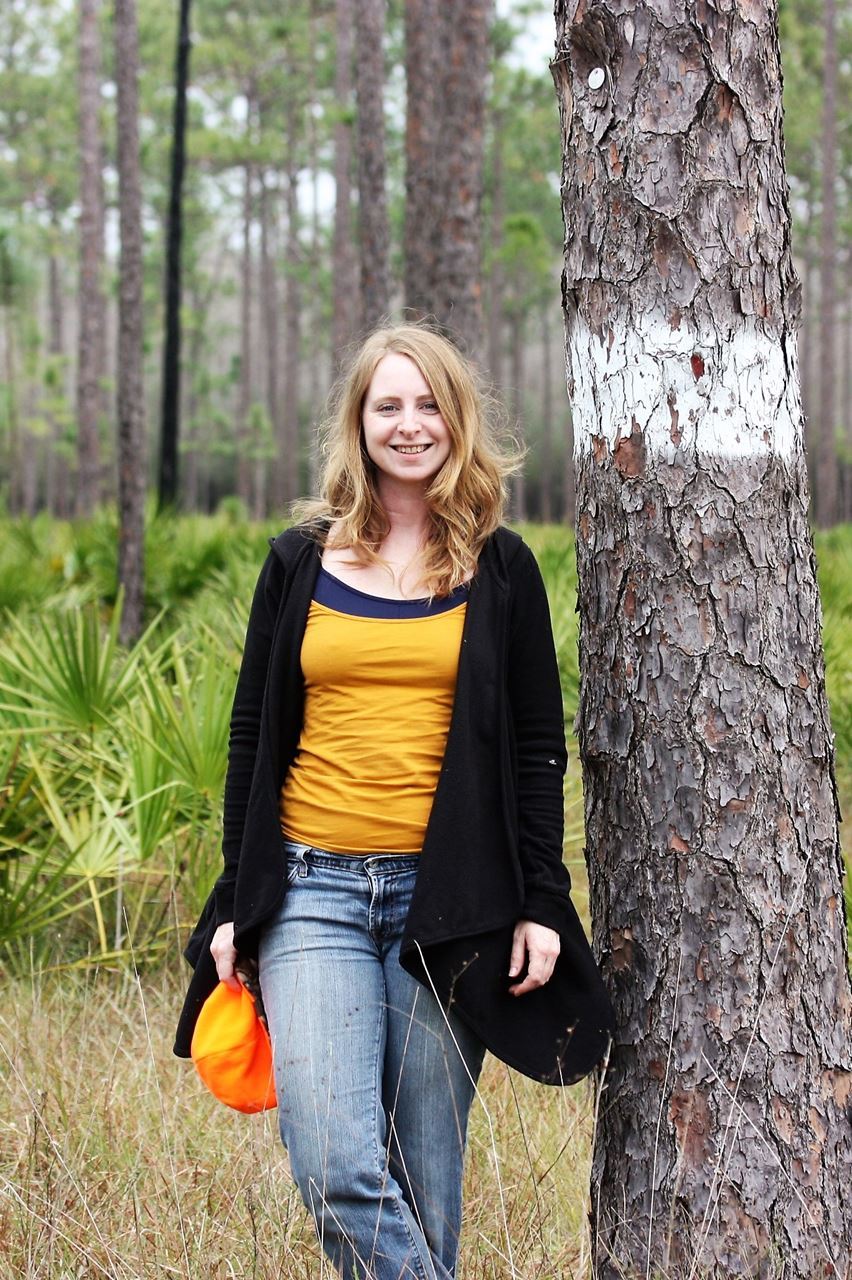- Home
- ABOUT US
|
OUR MISSION: To connect residents to the habitats of coastal Georgia
and empower them to be stewards of their natural environment
OUR GOALS: Educate target audiences about native habitats.
Provide tools to empower ecologically based decision-making.
Foster a culture that values biodiversity.
Coastal WildScapes is a 501 (c)(3) organization formed in 2009 to address the increasing need to educate and engage the public in practices that will preserve the biodiversity of the Georgia coast. We are run by an all volunteer board and one part time staff person.
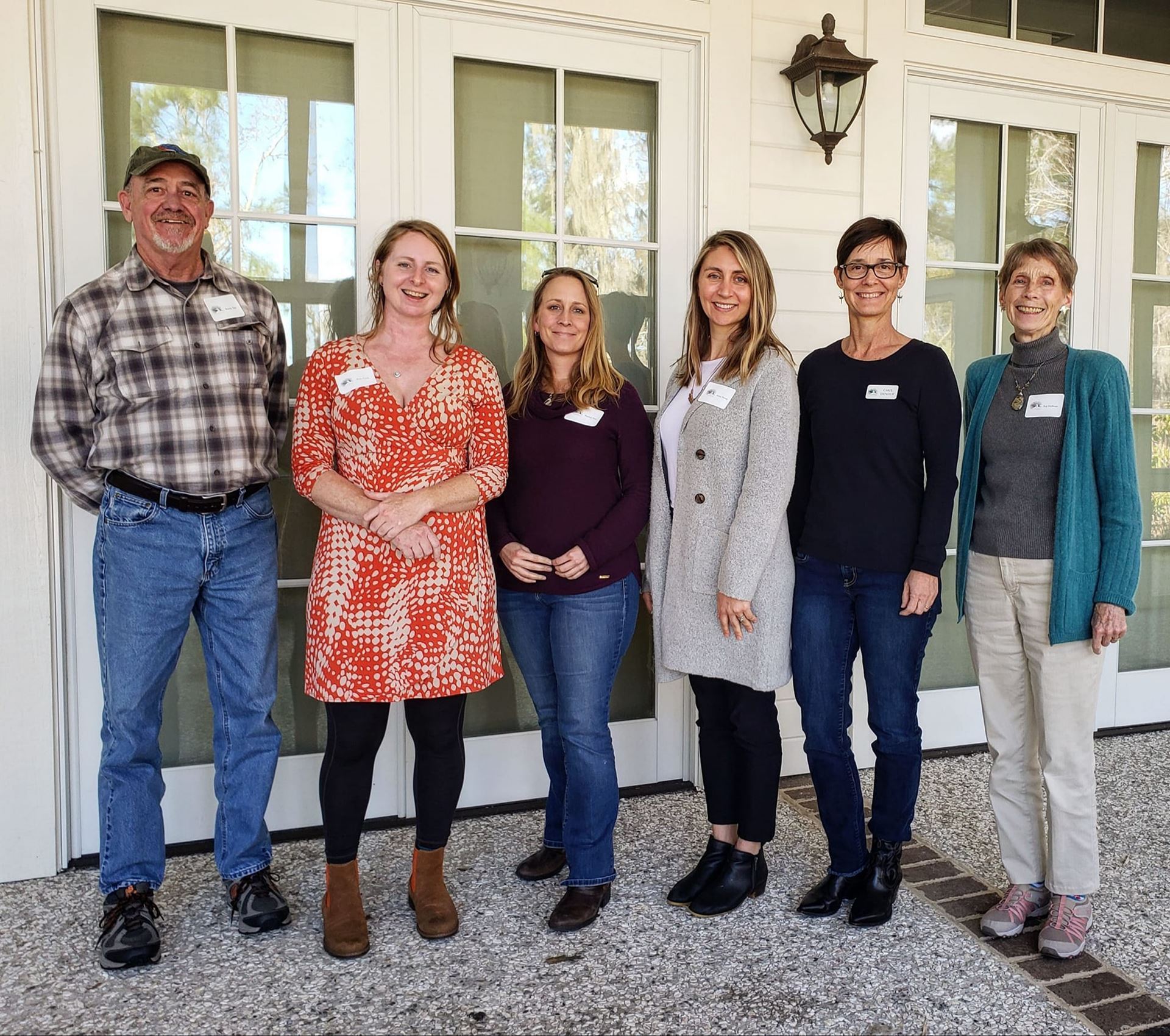
L to R: Randy Tate, Erin Cork (advisory), Rachel Guy (past), Ashby Worley (advisory), Carol Denhof, Kay Hoffman (past) 2023
Meet our Board Members
| RANDY TATE - CHAIRMANRandy is a retired conservation biologist that worked in natural resource conservation and management for 35 years starting with a field research job for the MA Heritage Natural Program studying short-eared owls and northern harriers on Nantucket Island. This was also his graduate school research project for a Master's degree in Biology (1989) from the University of Massachusetts at Boston. His undergraduate degree was from Clemson University (1975). He last worked for the Longleaf Alliance for 8 1/2 years coordinating the Ft. Stewart/Altamaha Longleaf Restoration Partnership. He formerly worked for the Georgia Department of Natural Resources as the Natural Resource Program Manager for Georgia State Parks and Historic Sites Division. Before joining GA DNR, Randy worked for The Nature Conservancy (TNC) for 20 years in four different positions from the FL Keys to Rhode Island. The last 10 years with TNC, Randy was Director of Science and Stewardship for the Georgia Chapter of TNC. He has participated in prescribed burning and fire management throughout his career and was a federally certified RxB2 Burn Boss. He was president of the GA Prescribed Fire Council in 2017. He is native of the lowcountry and was born and raised in Ridgeland, SC. He is currently retired and lives in Savannah, GA. |
| Carol Denhof - TREASURER
Carol has been with the Longleaf Alliance since January 2011 and assumed the position of President on November 1, 2019. As President, she leads the organization in its mission to ensure a sustainable future for the longleaf pine ecosystem through partnerships, landowner assistance and science-based education and outreach. In her former position with The Alliance as Understory & Media Coordinator, Carol was resonsible for activities ranging from facilitation of longleaf ecosystem restoration to implementation and coordination of outreach and education efforts of The Longleaf Alliance. Her specific job duties include, but are not limited to, promoting development of understory plant materials for restoration, researching understory related restoration issues, providing technical assistance to landowners and natural resource professionals, developing written materials and oral presentations, developing the quarterly Longleaf Leader magazine, managing the Longleaf Alliance website, and promoting the organization through social networking media. Previously, Carol worked for eight years as the Conservation Coordinator at the Atlanta Botanical Garden. During her tenure at the Garden, Carol managed projects that focused on the conservation of rare plant species throughout the southeastern United States. Her work involved plant propagation, population reintroduction and augmentation, habitat restoration, and habitat management. Prior to her time with the Garden, Carol worked as a Plant Ecology Research Technician at the Joseph W. Jones Ecological Research Center in southwest Georgia where she studied the understory diversity of longleaf pine wiregrass habitat. She earned her B.S. and M.S. in Biology from Georgia Southern University in Statesboro, Georgia. Carol is a native of Blakely, Georgia and currently lives on St. Simons Island with her husband and their two children. |
ANNIE QUINTING Annie was born in 1957 in Michigan. She has a BS in Fish and Wildlife Management from Michigan State University in 1993. She jokes about being on “the 18 year plan” for getting my degree! In the interim between high school graduation and my BS she got an AA in Fine Arts and worked as a sailmaker/canvasmaker in northern Traverse City, MI. after 12 years she decided to go back and finish my degree at MSU. Annie ended up in GA in June of 1993. She worked her first summer here with Wilderness Southeast leading their Coastal Expedition summer camp for middle school kids. 4 week-long primitive camping trips to Ossabaw Island. When that job ended she moved to Jekyll Island to take an assistant director position at the Jekyll Island 4H Center, working with Donna Stewart. In 1995 Annie moved back to Savannah to take a teaching position at Oatland Island Wildlife Center and retired after 23 years in 2019. Annie travels in the summer now…mostly to Michigan but does wander off the beaten path now and again! This past summer she volunteered at the Garrison Dam National Fish Hatcher in North Dakota, giving tours of the hatchery. Annie is an avid outdoors person. She loves to camp, hike, kayak, garden, and do home projects. She has a butterfly garden in her front yard in Parkside (Savannah). She was a beekeeper at Oatland for 15 years as well as a board member and member at large with the Coastal Empire Beekeepers Association, which now resides at Oatland. Annie is also involved with the Fiber Guild of the Savannah and dabbles in the Fiber arts as well as other art/craft activities. |
| ROB SUTTER - SECRETARY Rob Sutter is a Conservation Ecologist with expertise in the development of strategic plans for natural resources (species, ecosystems) and conservation entities (land trusts, wildlife agencies). Rob has worked for 40 years in the conservation field, 20 of those as the Regional Ecologist in the Southern U.S. for The Nature Conservancy. Before that he was the Endangered Species Botanist for the state of North Carolina and the first coordinator of the state’s Plant Conservation Program. He is now the principal of Enduring Conservation Outcomes, an ecological and conservation consulting firm in Savannah GA. His undergraduate and graduate degrees are from Duke University. Rob has worked on a wide range of conservation projects. Currently, in partial retirement, he is facilitating a landscape conservation plan for the islands of Maui Nui, Hawai’i; identifying flyway scale strategies for the Midcontinent Shorebird Conservation Initiative (the geographic equivalent of the Atlantic Flyway Plan), and developing a watershed plan for the Virgin River in Nevada. Past projects have include facilitating the development of strategic plans for the Longleaf Pine Implementation Teams in SC, GA, FL, and AL, Shortleaf Pine Initiative, Kenai Peninsula Fish Habitat Partnership, Arizona and South Carolina Chapters of The Nature Conservancy, and the Arkansas Game and Fish Commission. More locally he facilitated the development of the strategic management plan for St. Catherines Island, updated the beach light ordinances on Jekyll Island, facilitated meetings for the NOAA Coastal Resilience Assessment for the Savannah River Watershed, and co-authored the founding plan for America’s Longleaf Restoration Initiative. Rob lives in Savannah GA with his wife Alison McGee, an ecological forester. He enjoys biking, hiking, birding, traveling, history, architecture, gardening, music, and coffee, wine, and good food. His stepdaughter, Nina, just completed her Masters in Natural Resources at UGA and will be working in Savannah. |
Education Outreach Coordinator
| Amy SchulerAmy loves spending time in nature, photographing, hiking, biking, and exploring with her two beautiful daughters and husband. She is particularly fascinated with the flora and fauna of our coastal environment and our human impact on it. Amy’s undergraduate degree is in Environmental Studies and her graduate degree is in Biology; both degrees are from Youngstown State University (YSU). Amy moved to Georgia from Ohio over 14 years ago and has been enjoying it ever since! Before moving to Georgia, Amy was a naturalist at Mill Creek MetroParks (MCP) in Youngstown, OH for over seven years. At MCP, Amy conducted hikes, kayaks, bike rides, programs and workshops covering the flora and fauna of the park for children and adults. She also assisted in land development plans and invasive species control. She has also served as a web editor for the Environmental Protection Agency, Region 9 in San Francisco, CA and as an environmental scientist for Environmental Services & Consultants in Youngstown, OH. As a consultant, Amy conducted Phase I and Phase II Environmental Site Assessments (ESA’s), environmental remediations, and wetland delineations. Amy successfully completed work on a two year grant Coastal Incentive Grant from the Georgia Department of Natural Resources at Savannah State University (SSU) as a lab manager/research assistant in the Marsh Vegetation Research Lab (MVRL) in the Department of Natural Sciences. At SSU, Amy conducted research on the biology of smooth cordgrass (Spartina alterniflora), the dominant grass found in salt marshes in the Southeast. Amy has taught high school Advanced Placement Biology at Youngstown State University (YSU) and has had several contract positions through YSU teaching elementary students about nature. Amy has also taught various science classes at Savannah State University, Columbia College, University of Phoenix, Central Texas College, and South University. She currently works as the science lead and full-time instructor at Point University teaching science courses. In addition, she teaches several science classes at St. Leo University. Amy also served as the lead botanist for an invasive species Bioblitz at Ft. Pulaski National Monument in the fall of 2013 and volunteered in the summer of 2014 for the Caretta Research Project, monitoring nesting loggerhead sea turtles on Wassaw Island National Wildlife Refuge in Georgia. More recently, she helped to plant native groundcover for a restoration project of a longleaf pine / wiregrass community at Wormsloe Plantation in Savannah. Amy currently serves as the volunteer coordinator for Friends of Sapelo (FOS) with the Sapelo Island National Estuarine Research Reserve (SINERR). Amy has proudly served as the Education Coordinator at Coastal WildScapes since 2014. |
MEET OUR Advisory Committee
| ASHBY WORLEY
Ashby Nix Worley joined The Nature Conservancy as their Coastal Climate Adaptation Director in November 2016, where she works with coastal partners and communities to bring nature-based solutions to help address coastal hazards in order to build a more resilient Georgia Coast. Ashby has an undergraduate degree in Environmental Science from Mercer University and Master of Science Degree in Environmental Science, specializing in Wetland studies, from Louisiana State University. Ashby has worked as a coastal scientist in the coastal Georgia region for over 10 years, working for the Department of Natural Resources Coastal Resources Division and the University of Georgia in conducting long term ecological research, oyster restoration, water quality monitoring and marsh studies. From 2013-2016, she served as the Executive Director of the non-profit organization Satilla Riverkeeper, where she worked with local communities on environmental outreach, education, awareness, advocacy and policy. Ashby currently serves on the Georgia DNR’s Coastal Advisory Council and recently served as the chairman for Coastal WildScapes. Ashby is a Certified Floodplain Manager since November 2017. RALEIGH KITCHENRaleigh grew up in a family that loved being outside, whether that was a stroll down to the local pier at night or camping and hiking in the North Carolina mountains. Being raised this way sparked a passion for the great outdoors at a very young age. Growing up on St. Simons Island, she was always intrigued by the natural surroundings of our beautiful coastline.Raleigh graduated from the University of Georgia in May 2013 with a BS in Ecology. Her time studying in Athens, as well as internships and jobs during that time solidified her desire to find a job in a field where she could let her passions of conservation and education soar. After graduation, Raleigh worked over six years as the lead Naturalist on Sea Island where she ran the sea turtle conservation program on the island as well as many wildlife education programs for guests and members. Today, Raleigh works in membership and educational outreach for the St. Simons Land Trust. There, she is able to inspire others to conserve, protect and connect important lands and waters on St. Simons. Raleigh lives on St. Simons Island and enjoys spending her free time with her husband as well as romping through the maritime forests of our barrier islands with camera in tow. |
| THOMAS ANGELL Thomas Angell is a native of Savannah, Georgia and a graduate of the School of Environmental Design at the University of Georgia. In 1995, after seven years as a Landscape Architect in the firm of Robert Marvin & Associates, he founded his own firm, Verdant Enterprises. He specializes in ecologically-sensitive environmental design, landscape architecture, and site planning. In addition to the Coastal WildScapes board, he was a founding member of the Walterboro Tree Protection Committee and has served on several architectural review boards in the area. He is also a member of the American Society of Landscape Architects, the South Carolina Native Plant Society, the Lake and Watershed Association, the Exotic Plant Council, the Coastal Conservation League and the Nature Conservancy. Thomas is an avid gardener and lectures frequently on the subject of native plants. He has been a featured speaker at the Georgia Southern Botanical Gardens, University of Georgia, the Cullowhee Native Plant Conference, and at numerous Garden Clubs and Master Gardener classes. |
Christa Frangimore Hayes Christa enjoys helping local communities interpret and enjoy natural habitats and wildlife. Studying butterflies – their migration and relationship to natural communities engages much of her time. She currently lives in McIntosh County chasing butterflies, sedges and grasses. Christa obtained a Bachelor of Visual Arts at Georgia State University in 1976. Serving as Southeastern Coordinator for Earth Day 1990 ignited her interest in the intersection of ecology and human culture. She completed her formal studies by obtaining a Master of Science Degree in Conservation and Sustainable Development from the Institute of Ecology at the University of Georgia. Christa then served as science and non-fiction acquisitions editor for the University of Georgia Press and later as Assistant Faculty at the Fanning Institute at the University of Georgia where she developed programming for the Institute for Georgia Environmental Leadership. Her roles in coastal Georgia have ranged from conservation manager of Jekyll Island (2006-2009) to working with local governments and conservation organizations to interpret natural communities for the general public. Christi Lambert Christi has lived near and loved Georgia’s rivers her whole life. She is from the ridges and valleys of the Coosa River system in Northwest Georgia. Her involvement with The Nature Conservancy started early when she was monitoring rare plants and communities along the Coosa River in the Conservancy preserve adjacent to her college campus. Through her studies and work, she also has come to know and love the Altamaha and Savannah rivers. Now with more than 20 years of river conservation behind her, Christi works to care for all the watersheds in Georgia that flow to the Atlantic Ocean, as well as the seascapes created by the merging of the land and sea. On a daily basis she works with landowners, communities, water managers, agencies and industries to protect the health of the state’s rivers by changing the way they think about the rivers and dispelling the perception of water as an unlimited resource. Through a life of becoming so attuned to the needs of the rivers in Georgia, Christi is able to share her vast knowledge with other states and countries, such as traveling to Peru to work with communities along the Amazon River. Her work is all about the interface between the freshwater rivers and the ocean and coastal areas — and then also the relationship between communities and these resources. She is often surprised about how little people know about the rivers right outside their doors. Christi currently lives in McIntosh County, Ga., where she looks out her office window onto the beautiful coastal views and is able to reflect each day on what she is working to protect. In addition to exploring rivers and coastal areas even in her free time, Christi enjoys cooking and birding. She is also interested in learning about the local vernaculars of the places she travels. She loves that the culture, folklore, architecture, foods and arts, such as pottery and basket-making, often represent the area’s natural environment. Scott Coleman Scott represents the 4th generation in his family to pursue a career in natural resources. He grew up in Fort Gaines, Georgia, where he spent his formative years learning many intricacies of the natural world from his grandfather, a renowned botanist and horticulturist. Scott graduated from the University of Georgia in 2005 with a degree in Wildlife Biology. While in college Scott gained a variety of experiences working at The State Botanical Garden of Georgia, Callaway Gardens and The Jones Ecological Research Center at Ichauway. He began working on Little St. Simons Island in early 2006 as a naturalist and by the end of 2007 his job had evolved to ecological manager for the island. In his current role, Scott works to maintain, enhance and restore the natural ecological communities and wildlife populations on the 10,000 acre island. He has led the development of a 50-year conservation plan for Little St. Simons Island and is leading the transition of the island into a model for conservation management. His responsibilities include coordinating the island’s research, monitoring, restoration and natural resource management. Scott also manages a wide range of partnerships with public and private conservation organizations, and these conservation partners have roles with many ongoing projects on the island. Some of these projects include a nest and incubation project with American Oystercatchers, using fire management as a tool to maintain some of the rarest plant communities in coastal Georgia, mist netting to learn more about the island’s bat populations, assessing altered salt marshes to work towards restoration, and eliminating exotic/invasive species on the island. Scott has also headed up a project to implement native plant landscaping and habitat restoration around the island’s lodge accomodations and to develop a volunteer program to maintain these areas. Scott also serves on the Jekyll Island Authority’s conservation committee and is part of a project to ensure the protection and conservation of the Cannon’s Point property on St. Simons Island. He is particularly interested in engaging the local public through educational events and hands on volunteer projects to help build a culture of conservation in our coastal community. Scott is the liaison between Coastal WildScapes and the UGA Native Plant Certification program. |
erin cork
Erin is a wildlife biologist with Georgia DNR’s Wildlife Conservation Section. Erin completed her M.S. in Wildlife Ecology from The University of Georgia, where she studied habitat associations and management considerations for rare amphibians in longleaf pine communities. She has worked on amphibian conservation projects since 2013, which is around the same time she began to take an interest in the native plant communities that she explored in South Georgia’s forests, wetlands, and sandhills. She is currently the Conservation Chair for the Coastal Plain Chapter of the Georgia Native Plant Society and has recently established a Coastal Georgia chapter of the citizen-science amphibian monitoring program FrogWatch. |
